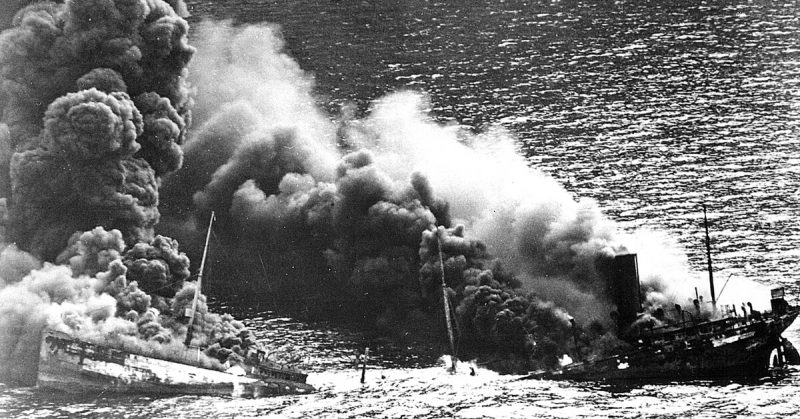New research that reveals the sinking of the Liverpool Packet off the coast of Nova Scotia which caused an invasion scare during the Second World War will appear this winter on the Canadian Broadcasting Corporation’s program Land and Sea.
In late May 1942, as WWII flared internationally, the Liverpool Packet, which ordinarily ferried newsprint to American ports for Mersey Pulp and Paper, on this return trip along Nova Scotia’s South Shore was carrying military goods for a Newfoundland-based American military post on Newfoundland.
The ship was seen by a German U-boat around 9 p.m. and sunk the vessel in under five minutes. Two men out of 19 died. They got into a damaged lifeboat and a small boat.
The Canadians thought they would be killed after the submarine surfaced. They were spared by the U-boat captain, said New Brunswick filmmaker Mike Burchill of Rothesay, New Brunswick. Among the Packet’s crew was his father, radio operator Howard Burchill.
The captain, Heinz-Otto Schultz, instead spoke with the captain of the Liverpool Packet, Norman Smith, in a pleasing conversation, and asked the crew if they were aware of their location, said Mike Burchill. In fragmented English, the captain indicated the direction of Nova Scotia.
The crew paddled for 20 hours toward the shore that lay over the horizon before a lobster fisherman and his sons saw them. He transferred them to Seal Island, an isolated community near the coast of Yarmouth County, CBC News reported.
Mike Burchill said on a CBC program that among his interviews with locals, he met Sheldon Simmons, who was 14 at the time and part of one family among 20 living on Seal Island. They were nervous having heard the torpedo explosion the day before.
Simmons recalled being extremely frightened and refused to believe Germans were landing on Seal Island.
Research into the story was sparked ten years ago when Burchill’s uncle gave him a flashlight (it still works) used by his father on the Packet which prompted Mike to research the story deeper.
